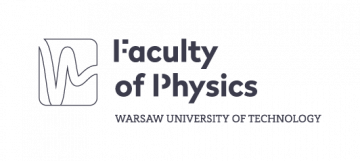Photonics
International Summer School of the Faculty of Physics
Language: English
Format: hybrid form of learning - 5-day course of online lectures, 5-day practical training in our laboratory
Date: 26th June - 07th July 2023
Duration: 2 weeks (60h - teaching hours: 30h online lectures and 30h laboratories)
Credits: 5 ECTS
Download official flyer of Our Summer School
The International Photonics Summer School aims to give hands-on experience on different fundamental and technical aspects of photonics systems. Organized by the Optics and Photonics Group, Faculty Of Physics, this summer school is intended for foreign students of the first degree, second degree of studies or PhD studies.
The Photonic Summer School brings together experts in fundamental physics, basic phenomena and photonic technologies who will share with young researchers their knowledge and approaches for understanding and designing basic photonic systems and their practical applications. This summer school combines both theoretical and experimental learning as well as academia and industry viewpoints. A high-level teaching and intense training on key topics photonics and material science will be provided by means of tutorial talks and a variety of practical experiments on the characterization and applications of photonic materials and devices.
The areas covered include, but are not limited to: (1) tunable photonic structures and optical systems, including topics such as nematic liquid crystals, their basic properties and applications in photonic devices; transmission over microstructure fibers; (2) photosensitive materials and their potential in optical data storage and processing; (3) light diffraction, interference as well as holography; (4) nonlinear aspects of photonic circuits.
General aspects of each thematic areas include:
Tunable photonic structures and optical systems: Participants will be taught the general physical properties of liquid crystals. They will be introduced to the experimental techniques for determining the orientation of nematic liquid crystal molecules in the measuring cells. They will conduct experiments to assess the effects of temperature and external fields on the optical properties of the liquid crystalline layers. They will learn the principles of a simple liquid crystal display and a liquid crystal logic gate. The next phase of the studies will be to introduce the liquid crystal into the microstructured optical fibers to obtain a tunable photonic structure that can be used as a sensing element. Characterization of the latter under experimental conditions will be carried out in a system equipped with a spectrometer and an optical spectrum analyzer.
Photosensitive materials: light-responsive behaviour and potential applications. Participants will be taught the general optical properties of azopolymers, that are a fascinating and important group of photosensitive materials.. Great interest in azo polymers arises from the unusual photoinduced processes, i.e., generation of optical anisotropy, stable surface patterns or photomechanical bending that appear under irradiation with polarized light of a proper wavelength. Azopolymers posses exceptional potential for technological applications in optical data storage and processing, photoalignment of liquid crystals or nanorobotics. The student's project aims to fabricate diffraction gratings using selected azopolymers and polarization holography as an irradiation method.
Light diffraction and interference: the topics of the summer school will also contain information about diffraction and interference. Starting from simple analysis of coherence length and its meaning, then all students will be able to construct on their own the interferometer, make the hologram from the basis and perform advanced experiments related to time reversal imaging. Step after step participants will be able to understand optical phenomena related to interference and will be able to construct their own optical setups to verify their knowledge.
Nonlinear aspects of photonic circuits: the nonlinear behavior of photonic systems will be also an important part of this summer school. Nonlinear optics govern the interaction of strong optical signals with the media in which those signals propagate. The nonlinear light-matter interaction results in a spatial and/or temporal phase modulation of the light wave. This affects diffractional and dispersional properties of waves leading, among others, to their self-trapping and space/time localization and formation of optical solitons - self trapped light beams where diffraction originating from the finite size of the beam is counterbalanced by the optical nonlinearity. Spatial solitons can be used to create reconfigurable optical circuits created by light alone where all-optical switching or processing is achieved through the evolution and interaction of the many soliton beams. We will use nematic liquid crystals as a nonlinear optical medium, where the light interacts strongly with the long molecules and produces interesting effects. Participants will be taught, among others, how to generate a solitary wave in liquid crystal cell and how to create a specially design cell for light beam routing and switching.

